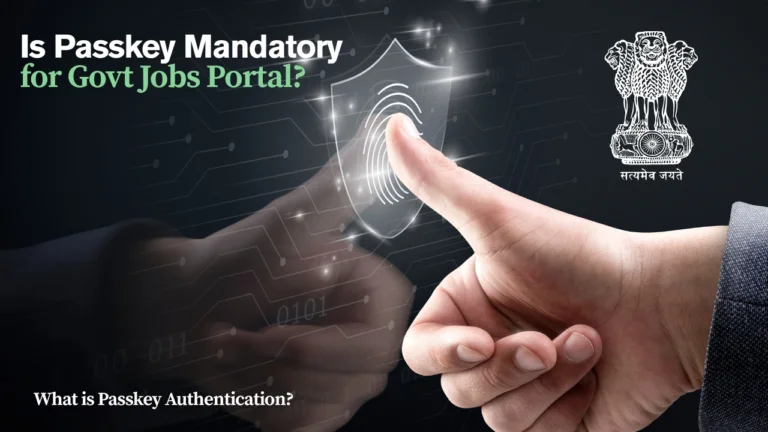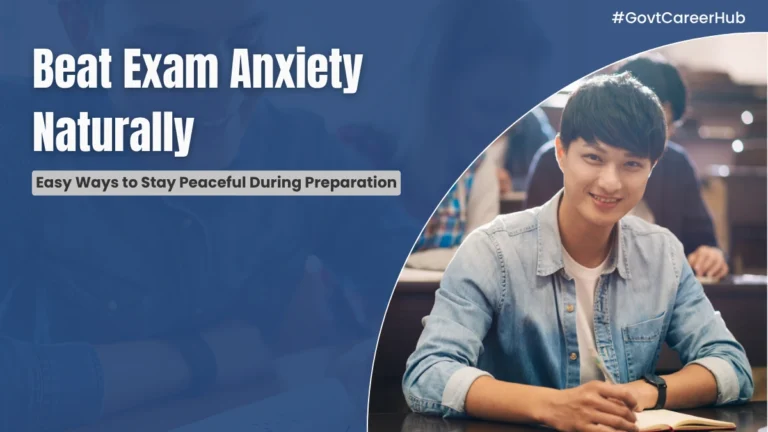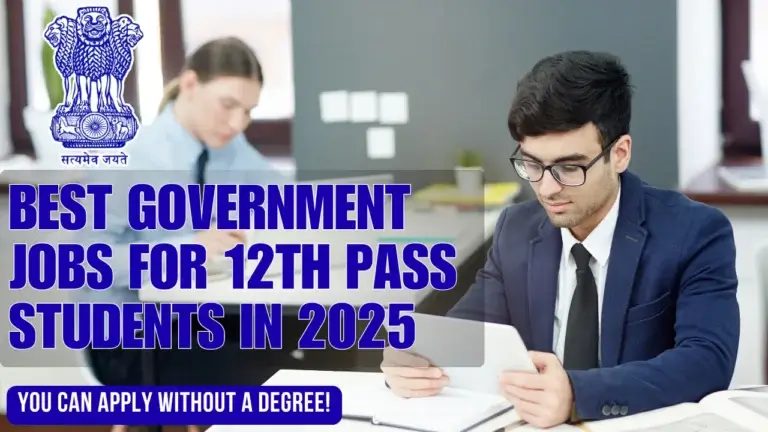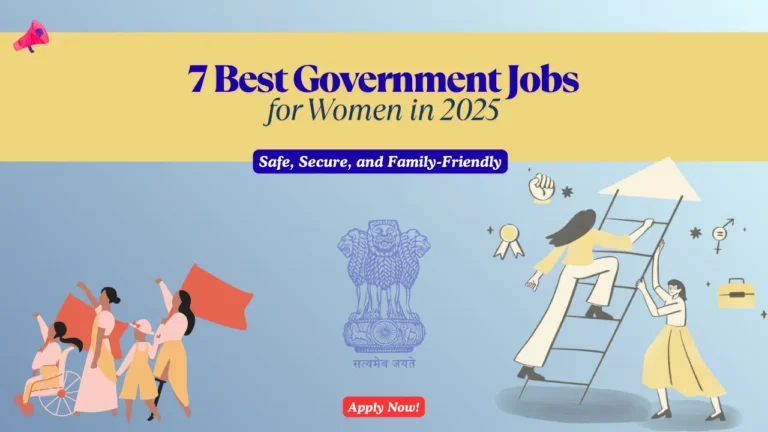Skills vs Degree: What Matters More for Career Success in 2025?

Last Updated: August 4, 2025 at 11:19 pm
The age-old debate between skills vs degree has never been more relevant than today. As India’s job market evolves rapidly, young professionals and students find themselves at a crossroads, wondering whether their degrees will secure their future or if they need to pivot towards skill-based learning.
Related: Government Job Preparation Strategies | Career Planning Guide for Students
Recent industry reports suggest that nearly 70% of Indian employers struggle to find candidates with the right skill sets, despite having access to millions of graduates each year. This mismatch between what universities teach and what the industry demands has sparked a nationwide conversation about the real value of traditional education versus hands-on expertise.
External Source: NASSCOM Industry Report on Skills Gap
The Current Employment Landscape in India
India’s employment scenario has undergone a dramatic transformation over the past decade. Traditional career paths that once guaranteed job security are no longer foolproof. The rise of technology, changing consumer behaviour, and the global shift towards remote work have created new opportunities whilst making some conventional roles obsolete.
Government surveys indicate that sectors like information technology, digital marketing, data analytics, and renewable energy are experiencing unprecedented growth. However, these industries prioritise competency over credentials, focusing more on what candidates can deliver rather than where they studied.
The startup ecosystem, which has become a significant employer in metros and tier-2 cities, particularly values problem-solving abilities and adaptability. Many successful entrepreneurs and professionals in these companies have unconventional educational backgrounds but possess strong technical and soft skills.
Related: Best Government Jobs for 12th Pass Students in 2025 | Work From Home Govt Jobs in India That Pay ₹30,000+ Monthly in 2025
Why Traditional Academic Knowledge Still Matters
Despite the skills-first trend, dismissing academic education entirely would be premature. Universities and colleges provide structured learning environments that develop critical thinking, research methodologies, and theoretical foundations that prove invaluable in complex decision-making scenarios.
Academic institutions offer exposure to diverse subjects, fostering well-rounded personalities. This broad knowledge base helps professionals understand interdisciplinary connections and communicate effectively across various departments and industries.
Moreover, certain professions like medicine, law, engineering, and teaching require comprehensive theoretical understanding that can only be acquired through formal education. The regulatory frameworks governing these fields mandate specific qualifications for practice.
External Source: All India Council for Technical Education (AICTE) Guidelines
Related: Professional Course Selection Guide | Engineering vs Government Services
Professional networking opportunities available in academic settings often prove beneficial throughout one’s career. Alumni networks, professor connections, and peer relationships formed during college years frequently translate into business opportunities and career advancement.
The Growing Importance of Practical Skills
However, the current job market increasingly rewards practical competencies over academic achievements. According to the Global Talent Index 2024, 78% of employers now prioritize skills over academic qualifications in their hiring decisions. Employers report that fresh graduates often lack job-ready skills, requiring extensive training before becoming productive team members.
Technical skills like programming, digital marketing, data analysis, and project management are becoming universal requirements across industries. These competencies are typically acquired through online courses, bootcamps, workshops, and hands-on projects rather than traditional classrooms.
Soft skills such as communication, leadership, time management, and emotional intelligence are equally crucial. These attributes directly impact workplace productivity and team dynamics, making them highly sought after by hiring managers.
The gig economy and freelance opportunities have further emphasised skill-based earning potential. Platforms like Upwork, Fiverr, and local service marketplaces reward expertise and deliverables rather than educational qualifications.
External Links: Upwork | Fiverr | Freelancer.in
Related: Freelancing vs Government Jobs Comparison | Side Income Ideas for Government Employees
Industry-Specific Perspectives
Different sectors have varying preferences regarding academic credentials versus practical abilities. The technology industry, for instance, has pioneered skills-based hiring practices. Companies like Google, Apple, and IBM have removed degree requirements for many positions, focusing instead on portfolio-based evaluations and practical demonstrations.
External Source: IBM Skills-Based Hiring Initiative
Related: Tech Career without Engineering Degree | IT Sector Job Opportunities
Creative industries including advertising, content creation, and design have always prioritised talent and creativity over formal education. Many successful professionals in these fields are self-taught or have learned through apprenticeships and mentorship programmes.
Traditional sectors like banking, government services, and large corporations still maintain preference for academic qualifications, particularly for entry-level positions. However, even these organisations are beginning to recognise the value of continuous learning and skill development for career progression.
External Source: Reserve Bank of India Career Guidelines
Related: Banking Sector Career Guide | Government Job Eligibility Criteria | Corporate vs Government Jobs
Manufacturing and industrial sectors are experiencing a shift towards technical expertise and operational knowledge. Vocational training and industry-specific certifications are becoming more valuable than generic degree programmes.
The Skill Development Revolution in India
The Indian government’s recognition of this skills gap has led to several initiatives aimed at bridging the divide between education and employability. The Skill India Mission, launched in 2015, aims to train over 400 million people by 2025 through various skill development programmes.
External Source: Skill India Official Portal
Related: Government Skill Development Schemes | Skill India Mission Benefits
Digital India initiatives have accelerated the adoption of online learning platforms, making quality education accessible to millions. Platforms like SWAYAM, NPTEL, and various private providers offer industry-relevant courses that complement traditional education.
External Links: SWAYAM Portal | NPTEL | Coursera | edX
Related: Best Online Learning Platforms for Government Job Preparation | Digital India Career Opportunities
Public-private partnerships have emerged to create training programmes aligned with industry requirements. Companies are collaborating with educational institutions to design curricula that produce job-ready graduates.
The rise of micro-credentials and digital badges allows professionals to showcase specific competencies to potential employers. These bite-sized qualifications are often more relevant to immediate job requirements than broad-based degrees.
Creating a Balanced Approach
Rather than viewing academic knowledge and practical skills as competing alternatives, successful professionals are adopting a hybrid approach that combines both elements effectively.
Continuous learning has become essential for career sustainability. Professionals who regularly update their skills through online courses, workshops, and industry certifications maintain competitive advantages in the job market.
The concept of lifelong learning encourages individuals to view education as an ongoing process rather than a one-time achievement. This mindset helps professionals adapt to changing industry requirements and technological advances.
Portfolio careers, where individuals develop multiple income streams based on different skills, are becoming increasingly common. This approach provides financial security whilst allowing personal and professional growth.
Practical Steps for Career Success
Building a successful career in today’s environment requires strategic planning and consistent effort. Here are actionable steps that can help individuals navigate this landscape effectively:
Assess Current Market Demands: Research your target industry to understand which skills are in highest demand. Use job portals, industry reports, and professional networks to gather this information.
Identify Skill Gaps: Honestly evaluate your current competencies against market requirements. Focus on developing skills that offer the highest return on investment in terms of career advancement and earning potential.
Choose Learning Pathways: Select appropriate learning methods based on your schedule, budget, and learning style. Options include online courses, workshops, bootcamps, mentorship programmes, and self-directed learning.
External Resources: Udemy | LinkedIn Learning | Skillshare
Related: Time Management for Working Professionals | Budget-Friendly Skill Development Options
Build a Portfolio: Create tangible evidence of your skills through projects, case studies, and practical demonstrations. This portfolio becomes crucial during job interviews and freelance opportunities.
Network Strategically: Engage with industry professionals through social media, professional associations, and networking events. Building relationships often leads to opportunities and valuable insights.
External Links: LinkedIn | Naukri.com | Indeed
Related: Professional Networking Tips for Government Job Seekers | Building LinkedIn Profile for Career Success
Stay Updated: Follow industry trends, technological developments, and changing job requirements. Subscribe to relevant publications, attend webinars, and participate in professional development activities.
The Role of Employers in This Transition
Progressive employers are adapting their recruitment and development strategies to accommodate the changing talent landscape. Many organisations now focus on potential and learning agility rather than past achievements alone.
Skills-based hiring practices are being implemented through practical assessments, portfolio reviews, and trial projects. These methods provide better insights into candidate capabilities than traditional interviews alone.
Internal training and development programmes are being strengthened to bridge skill gaps among existing employees. Companies are investing in upskilling initiatives to retain talent and improve productivity.
Mentorship and coaching programmes are being established to support career development. These initiatives help employees navigate the transition from academic learning to practical application.
Future Trends and Predictions
The future of work will likely see an even greater emphasis on adaptability and continuous learning. As technology continues to evolve rapidly, professionals who can learn quickly and apply new knowledge effectively will have significant advantages.
Hybrid educational models that combine academic rigor with practical application are emerging. These programmes aim to produce graduates who possess both theoretical understanding and job-ready skills.
Industry-academia partnerships are expected to strengthen, creating more opportunities for students to gain real-world experience during their studies. Internships, apprenticeships, and project-based learning will become more common.
The gig economy will continue to grow, providing opportunities for skilled professionals to monetise their expertise independently. This trend will further emphasise skills over credentials in determining earning potential.
Making the Right Choice for Your Career
Ultimately, the choice between focusing on academic credentials or practical skills depends on individual circumstances, career goals, and industry requirements. However, the most successful approach involves developing both elements strategically.
Young professionals should consider their long-term career aspirations when making educational and skill development decisions. Those aiming for leadership positions may benefit from formal education combined with practical experience, whilst others might find success through specialised skill development.
The key lies in maintaining flexibility and being willing to adapt as circumstances change. The job market will continue to evolve, and professionals who can navigate these changes effectively will find the greatest success.
Regular self-assessment and career planning help ensure that learning investments align with professional goals. Setting clear objectives and measuring progress against these goals provides direction and motivation.
Related: Career Assessment Tools and Techniques | Goal Setting for Government Job Aspirants | Personal Development Planning
Frequently Asked Questions (FAQ)
Conclusion
The debate between skill development and academic knowledge is not about choosing one over the other, but rather understanding how to leverage both effectively. In today’s competitive job market, the most successful professionals are those who combine strong foundational knowledge with practical, job-relevant skills.
The Indian employment landscape is rewarding competency and results over credentials alone. However, this doesn’t diminish the value of education; instead, it highlights the importance of practical application and continuous learning alongside formal qualifications.
As the future of work continues to evolve, professionals who embrace lifelong learning, develop diverse skill sets, and remain adaptable to change will find themselves well-positioned for success. The key is to view education and skill development as complementary investments in your career rather than competing alternatives.
Whether you’re a recent graduate, mid-career professional, or someone considering a career change, focus on building a combination of knowledge and skills that align with your goals and market demands. The professionals who thrive in tomorrow’s economy will be those who master the art of continuous learning and practical application.
Related Reading: Career Change Strategies for Government Employees | Fresh Graduate Career Planning Guide | Mid-Career Growth Opportunities
External Resources: Ministry of Education, India | Ministry of Skill Development and Entrepreneurship | National Career Service Portal
About GovtCareerHub.com: We provide comprehensive guidance on government job opportunities, career planning, and skill development to help you build a successful career in public service. Explore our complete resource library for more career insights and job preparation materials.






